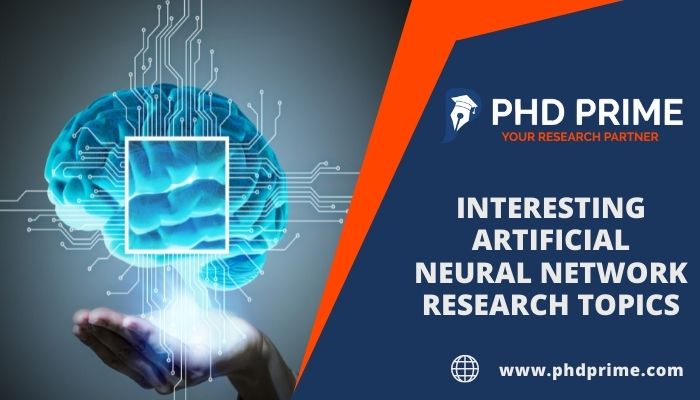An ANN is the sub-class of artificial intelligence which is aimed to pretend the human brain’s duties like decision making, recognition, prediction, etc. It is a threat defeating model that exists in emergency divisions and is accessed by the corresponding division physicians. Here, they distinguish the individuals/patients as little risk and extreme risk. If the patient is a little risk then they can safely send home otherwise they undergo quick hospitalization. Reach us for latest Artificial Neural Network Research Topics.
This page talks about the new arrival of interesting research ideas in ANN!!!
In fact, ANN can be implemented in several applications where few of them are listed below for your reference.
- Handwritten Character recognition
- Video and Image compression
- Forecast of Stock Market Index
- And Other Varied Applications
Next, we can see the important features of the ANN which make a strong foundation for artificial intelligence. All this information helps you to create on best Artificial Neural Network Research Topics.

Key Features in ANN
- Processing units constitute the ANNs with inputs and outputs where the ANN absorbs information is processed to generate the preferred outcome.
- Backpropagation is the set of learning chain guidelines used to direct the artificial neural networks.
- The ANN applications left their footprints all over the place such as time series prediction, control system, gaming theory, personal communication, smart learning, and so on.
Thus far, we have debated about the ANN fundamentals and their importance of PhD study. Now, it’s time to see significant research ideas that currently seek the attention of scholars.
Artificial Neural Networks Research Areas
Below mentioned domain is the most popular space to craft novel artificial neural network research topics.
- Digital Signal Processing (DSP)
- Computer Vision in AI
- Dynamic and Adaptive Control System
- Real-Time Embedded or Intelligent System
- Time Series Modeling and Analysis
- Dynamic Fuzzy Logic Systems and Control
- Multi-Agent Systems and Applications
- Mining of Humanistic Data and Science
- Object Motion and Color Analysis
- Pattern Identification using Machine Learning
- Advanced Process Monitoring and Fault Diagnosis
- Smart / Intelligent Transportation Systems (STS or ITS)
What are the applications of ANN?
- Decision-Making Software and Applications
- Environmental Resource Engineering and Science
- Applications of Biomedical Engineering
In ANN, mathematical and numerical analysis acts as the central tool to inspect algorithms in all aspects. To be specific, these mathematical computations bring out the strong and weak points of one and all ANN algorithms. So, the better math interpretations in ANN eventually draw the direct way to improve algorithms and methodologies. For instance, through this logic, one can construct safety measures in crucial industrial areas such as independent driving.
In addition, from the code development point of view, our experts have suggested key essential operations that are required for the practical execution of the ANN project. To the great extent, we also support you to prepare Artificial Neural Network Research Topics which will be discussed at end of the section.
How to implement ANN?
- At first, obtain the train, validation, and test set of data
- Next, train the data in the network
- At last, make an estimate the result with test data
Furthermore, Neural Networks offer a solution for various sorts of problems such as data dimension reduction, complex pattern realization, AI-computer vision, categorization, language linguistics, regression / predictive analysis, etc.
How to evaluate a dataset using ANN?
Just to let you be more clear about this concept, we are given this example. At first, for ANN or ML modeling, we divide the dataset into three parts as follows,
- Training set (60%)
- Test set (20%)
- Validation set (20%)
Generally, working out the network through the training set is to regulates the weights and models. At the time, check two main conditions which are essential to determine the optimal count of hidden units or endpoint of the back-propagation procedure. And, the conditions are given as follows,
- First, it should not overflow to the network and the other is
- Second, input the validation set and inspect whether the error occurred in some range
At last in the test data, the accuracy provides a performance evaluation on entirely real-world information. And also, it approves the genuine analytical control of the network.
- Training Set: It is used to build a predictive correlation among the machine learning models. In this, most of the methods go through training data for experiential relations which look out for overfitting the data. By the by, the test set is independent of training data where the least overfitting may occur. Most probably, if a model fit both training and test set well,
- Validation Set: As mentioned earlier, this set is used to choose one model by comparing it with others’ performance which is particularly meant for avoiding overfitting. And, here the comparison is performed in the hidden layers.
- Test Set: Lastly, it acquires the key performance features including accuracy, data rate, etc (RMSE) which does not use in model creating process.
As a matter of fact, our proposing Artificial Neural Network Research Topics clearly points out the digital transformation of the recent research. In the case of ANN, it speaks out the real-time applications and learning in the aspect of theoretical and practical studies. Certainly, our experts bring out the new visions of research that reveal the advance ANN practices in master research. Further, if you need any help in any of the research services such as ANN Research Proposal, code execution, manuscript writing, and publication, then contact us.





















